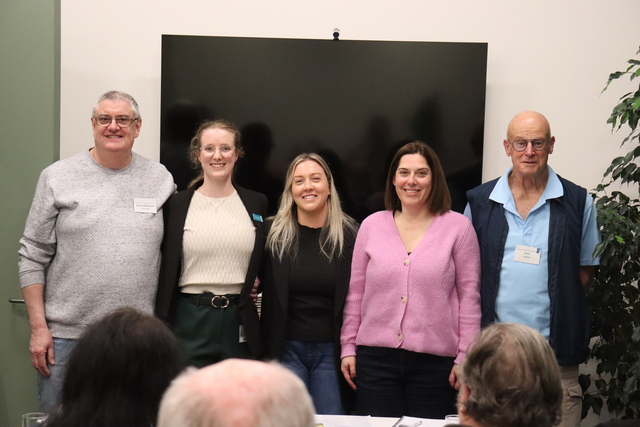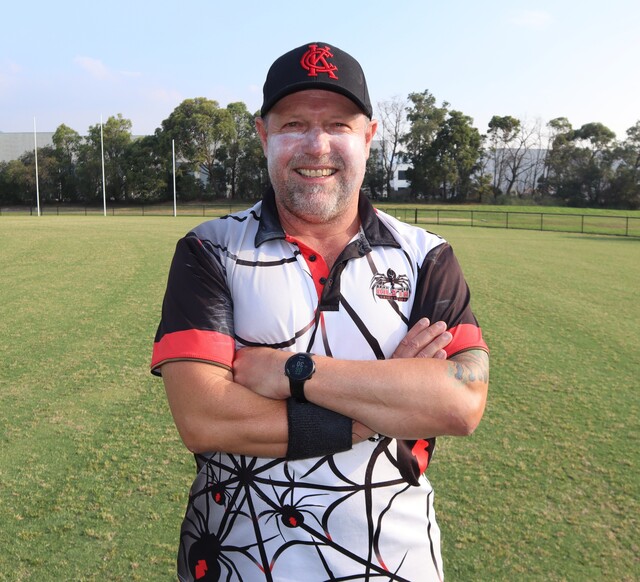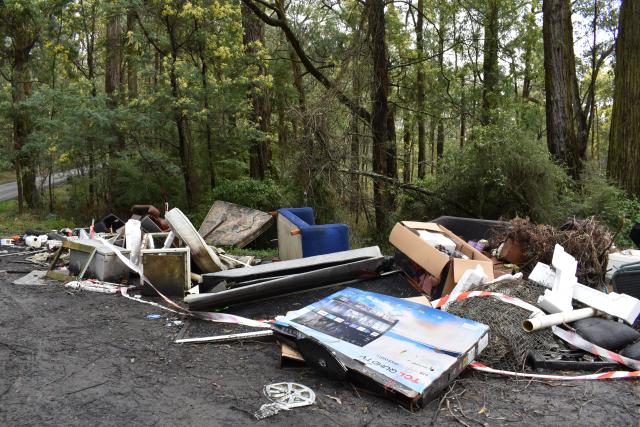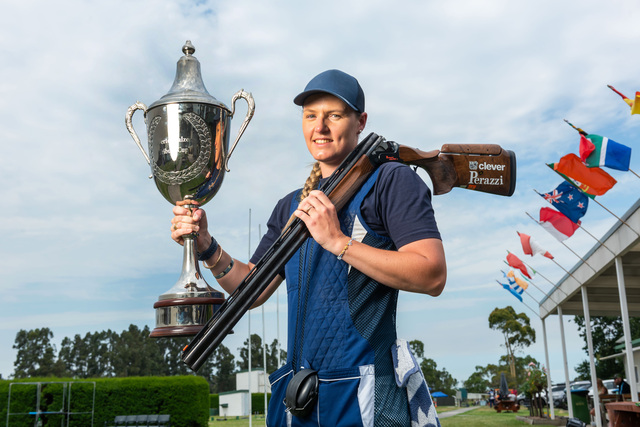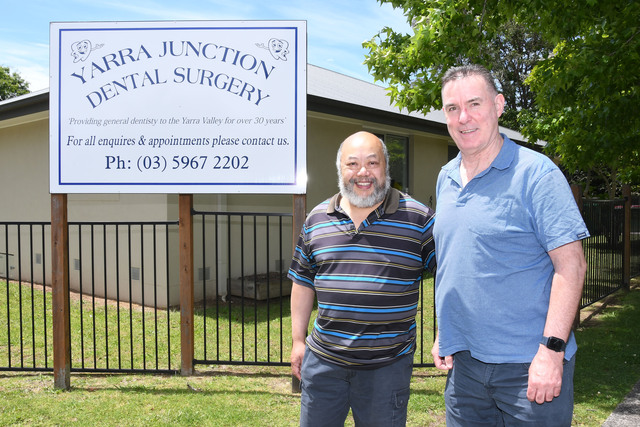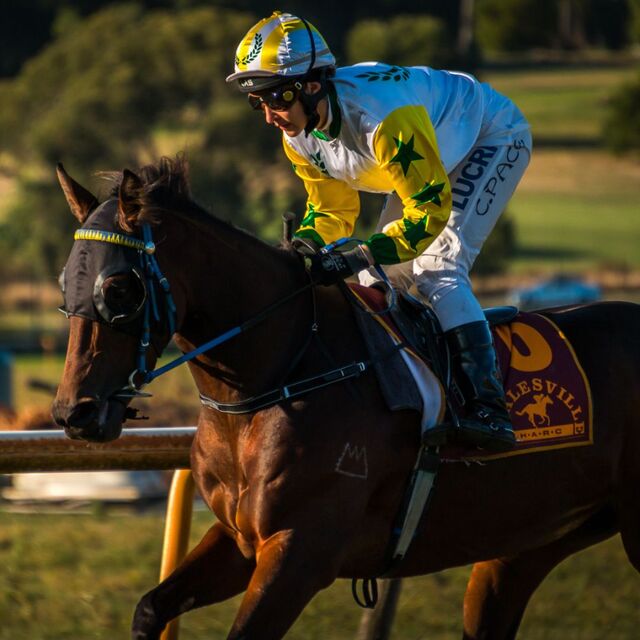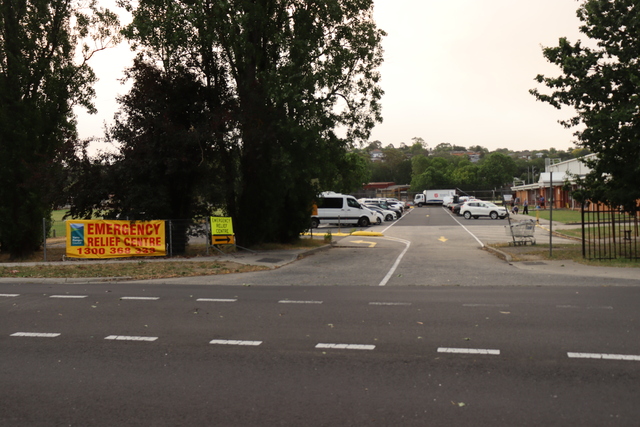For men who are diagnosed with prostate cancer, of which there are more than 70 per day around the country, finding support and guidance is an essential part of treatment.
That’s why groups like the Ringwood Prostate Cancer Support Group exist, to ensure men and their partners don’t have to go through it alone.
As the furthest support group out east, the Ringwood group brings men together at all stages of their treatment and recovery from the Yarra Ranges, Knox and Maroondah.
Regular attendee Steve, who was diagnosed with prostate cancer in late 2017, discovered the group about 16 months ago and said sharing information and stories is the best part.
“We’re all on the same journey, but we’re all taking different paths. Everybody’s that little bit different and you rarely find two people the same,” he said.
“One of the benefits of a support group is I can listen to Chris talking about something I want to know, so I can go have a chat with him. So you can pick people’s brains. What did it involve? How does it work? And actually get it from the horse’s mouth. That’s the beauty of this.”
Lilydale resident Chris said his diagnosis in March 2019 and subsequently joining the support group has led to his ability to strike up conversations with other men and encourage them to get tested.
Often holding stalls at markets with his wife, Chris said if a man of a similar age starts browsing, he will sometimes use it as an opportunity to mention prostate cancer and prostate-specific antigen (PSA) testing.
A tale all too common among the group attendees was their diagnosis leading to a conversation with others around them and they too being diagnosed shortly after.
“I was almost expecting prostate cancer because my dad had it. There’s three boys in my family. My (PSA) levels started to change, so I got onto it early. My second brother, he’s two years younger, had his prostate out six months after me,” Steve said.
But for Steve’s good friend, who for other medical reasons was getting regular blood tests and medical examinations, and aged in his sixties, it was only recently that a PSA test was included. Three months later he was having his prostate removed.
Steve and Chris said that while their levels are considered stable, they are both seeing slow increases in their PSA levels again.
With September being Prostate Cancer Awareness Month, not only was the message at the regular monthly meeting on Tuesday 26 August to get tested but to find support among men who are going through the same thing.
Meeting on the fourth Tuesday of every month, with guest speakers in attendance, this month saw Eastern Health’s specialist prostate cancer nurses Mel Caruso and Amelia Rolfs, present the current available treatments and side effects.
Mel said pre-2015 androgen deprivation therapy (ADT) was really the only treatment available, but the medical field has “progressed greatly” since then, now offering radiotherapy and chemotherapy alongside hormone therapy and surgery.
Unfortunately, ADT or hormone therapy does come with some side effects that need to be monitored.
“It just blocks the testosterone in your body. Testosterone is like a fuel to prostate cancer cells, but by reducing your testosterone, you’re going to experience a lot of side effects. So it is like menopausal like side effects,” Mel said.
This includes, but is not limited to, hot flushes, metabolic syndrome, fatigue, cardiovascular risk, cognitive changes and bone density reduction.
A counteractive to much of this, however, is exercise.
“If exercise were in a pill, everyone would be taking it,” Mel said.
“There’s so much research to show that it actually mitigates a lot of the side effects.”
But with the prevalence of ADT, Mel said mental health deterioration among prostate cancer patients is high.
“The psychological impact is really, really great…the effects of ADT on mental health, so 60 per cent report negative changes in body image.
“A lot of men report that there’s a loss of manhood, a loss of control of what is happening within their bodies. A lot of men can’t do what they used to do, like mowing the lawns or tending the farm or so forth.
“Depression is really high amongst prostate cancer patients too. So 13 to 18 per cent experience depression, mood swings, which affect interpersonal relationships and self-perception.
“And then, 47 to 69 per cent of men have cognitive impairment when on ADT. So that’s a massive percentage, and we do promote counselling and support, obviously, support groups that can help you with emotional and psychological challenges.”
The Prostate Cancer Foundation of Australia (PCFA) has support services available, including a trained volunteer telephone-based service called MatesCONNECT, which connects men with someone who has been through prostate cancer and a Prostate Cancer Counselling Service that’s free of charge for men and their partners.
That’s where local peer support groups also become hugely valuable for the diagnosed person and their loved ones.
Stella Blackwell, wife of Ringwood group leader Andrew, said the support of the group has not only been immensely helpful for Andrew and his cancer journey, but also in her own acceptance of losing her brother.
“I lost my brother three years ago, and he had a really aggressive cancer. When I hear Mel speak about how they’re doing this, that, and the other, and all these trials and with positive outcomes, I feel happy for people, but I feel sad,” she said.
“Depending on the cancer, they could throw everything at it, that’s what happened to him, it was so aggressive that it didn’t matter what they did. This has helped me, not move on because I’ll never move on, but to live with it.”
With Andrew still facing treatments, Stella said “he’ll need all the support he can get” and so being surrounded by friends and others who have been through or are going through similar makes it easier.
“Everyone here has either gone through the journey or is going through the journey, and everyone has different information,” Andrew said.
“We’re on the same train, just getting on and off at different stations.”
Andrew’s final message for Prostate Cancer Awareness Month was to get tested early and regularly.
“Prostate cancer is one of those silent cancers, unless you get tested,” he said.
The Ringwood support group will be hosting a Bunnings barbecue fundraiser in Ringwood on Saturday 20 September.
For more information about the Ringwood group, visit: pcfa.org.au/support/find-a-support-group/ringwood-pcsg/

